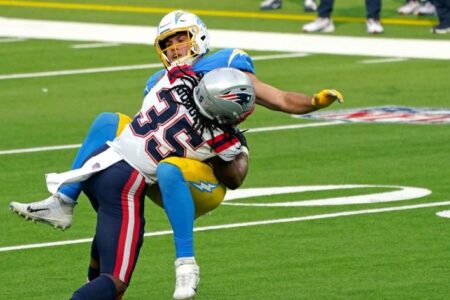- Joined
- Apr 3, 2006
- Messages
- 26,101
- Reaction score
- 52,115
I cannot understand the rationale behind these picks. I understand this goes way back in the NFL, and I'm glad the Patriots usually stock up on them, but why? It diminishes the purpose of looking to trade a player to get something back in return and offers a reward for failing to re-sign a player.
Take for example what the Patriots did with the cornerback situation over the last two years.
-Did not resign Aqib Talib and received a third round compensatory pick.
-Signed Darrelle Revis, then failed to exercise his option a year later, getting another third-round compensatory pick.
-Theoretically, the Patriots could have used Revis's money to get another star cornerback and repeat the process again.
It seems that going from Talib to Revis, or freeing cap space for that matter, constitutes adequate compensation for letting a player walk.
In some ways, compensatory picks are counterproductive to the league in that fans like continuity with teams keeping their players around; I've always been of the belief that teams should get a cap discount when re-signing a player to encourage long-term service, better for fans and overall experience.
Thoughts?
Take for example what the Patriots did with the cornerback situation over the last two years.
-Did not resign Aqib Talib and received a third round compensatory pick.
-Signed Darrelle Revis, then failed to exercise his option a year later, getting another third-round compensatory pick.
-Theoretically, the Patriots could have used Revis's money to get another star cornerback and repeat the process again.
It seems that going from Talib to Revis, or freeing cap space for that matter, constitutes adequate compensation for letting a player walk.
In some ways, compensatory picks are counterproductive to the league in that fans like continuity with teams keeping their players around; I've always been of the belief that teams should get a cap discount when re-signing a player to encourage long-term service, better for fans and overall experience.
Thoughts?



















